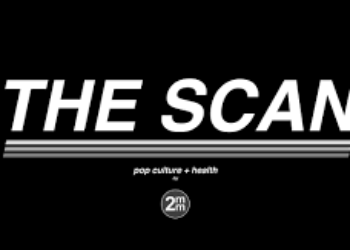Oxytocin therapy improves social activity in autism mouse model [PreClinical]
1. Administration of oxytocin to a monogenic mouse model of autism improved social interactions
2. Oxytocin treatment during the developmental period was sufficient to improve social behavior in fully developed mice.
Evidence Rating Level: 3 (Average)
Study Rundown: Autism spectrum disorder (ASD) is a complex and heterogeneous disease. To date, hundreds of genes have been identified as potential candidate causes, although none account for a significant fraction of cases of ASD. Consequently, researchers have been limited in their ability to study ASD and understand the pathogenesis of the disorder to develop therapies. In particular, although difficulty with social interactions is considered a core feature of ASD, no pharmacological treatments exist that target this aspect of the disease.
Recently, a new mouse model of ASD was generated that lacks expression of the contactin-associated protein like-2 (Cntnap2) gene. This knockout (KO) model recapitulates several important behavioral features of ASD, including impaired social interactions. This study began by screening compounds to identify those that improved social interactions in the Cntnap2 KO mice, and found oxytocin to be a strong candidate. Given that ASD has a significant developmental component, the investigators next examined the utility of oxytocin intervention early in mouse development. After treating the mice with oxytocin throughout their postnatal development (7-21 days old), they noted increased social interactions at day 30, when mouse development is believed to be complete. This suggests that augmenting oxytocin signaling in young patients with ASD may have substantial benefits for adulthood.
This study has several important caveats. First, ASD is a heterogeneous disorder and although oxytocin signaling shows promise in a monogenic model, the fraction of humans similarly afflicted is unknown. Second, the knockout mice exhibited seizures and other behavioral abnormalities, raising the possibility that their impaired social interactions may be the result of a number of distinct problems. Third, human cognition and social interactions are complicated phenomena and the application of mouse models to examining such traits is likely inherently limited. Despite this, there is a growing amount of literature on the role of oxytocin in promoting human and animal social interactions, suggesting substantial promise for therapies targeting the oxytocin system in some cases of ASD.
Click to read the study in Science Translational Medicine
Relevant Reading: Neuropeptides and social behaviour: effects of oxytocin and vasopressin in humans
In-Depth [animal study]: In this study, investigators used a Cntnap2 KO mouse model of ASD to perform a limited screen of five compounds tied to social behavior. They identified the two neuropeptides oxytocin and vasopressin as potential therapeutics that improved Cntnap2 KO mouse interactions in social evaluation experiments, while not affecting wildtype mouse interactions. These two molecules are structurally similar, and vasopressin binds the oxytocin receptor in addition to others. The authors repeated behavioral experiments after adding inhibitors of the oxytocin receptor or vasopressin receptors, and found that blocking the oxytocin receptor inhibited the compound-driven increase in Cntnap2 KO mouse social interactions.
To investigate why loss of Cntnap2 led to a disorder amenable to oxytocin therapy, investigators used a radioimmunoassay to quantify the amount of oxytocin in brains of wild type and KO animals. As predicted by the therapeutic effect of exogenous oxytocin, less oxytocin was found in the brains of knockout animals. While the total number of neurons was unaffected in the Cntnap2 mice, the researchers found there were fewer oxytocin-expressing cells in the fully-developed KO animals than in the wildtype mice. This difference was not present during development at 7 days postnatal.
Researchers found Cntnap2 KO mice treated with oxytocin from days 7-21 postnatal displayed normal social behavior at day 30 postnatal as compared to those that received no treatment (p = 0.004). Wildtype mice showed no change in behavior under the same experimental conditions.
More from this author: Chronic marijuana use linked to structural differences in the brain, Flavanols in cocoa may improve brain function in older adults, Gut bacteria respond to daily rhythms and influence weight control
Image: PD
©2015 2 Minute Medicine, Inc. All rights reserved. No works may be reproduced without expressed written consent from 2 Minute Medicine, Inc. No article should be construed as medical advice and is not intended as such by the authors, editors, staff or by 2 Minute Medicine, Inc.





![Statin therapy does not prevent osteoporotic fractures [JUPITER trial]](https://www.2minutemedicine.com/wp-content/uploads/2014/12/osteoporosis-e1417474828821-75x75.jpg)
![Endostatin directly binds androgen receptors to treat prostate cancer [PreClinical]](https://www.2minutemedicine.com/wp-content/uploads/2015/01/Endostatin-75x75.jpeg)
![Active smoking cessation intervention may provide tangible results [Project CLIQ]](https://www.2minutemedicine.com/wp-content/uploads/2014/12/smoking-e1418644951268-75x75.jpg)
